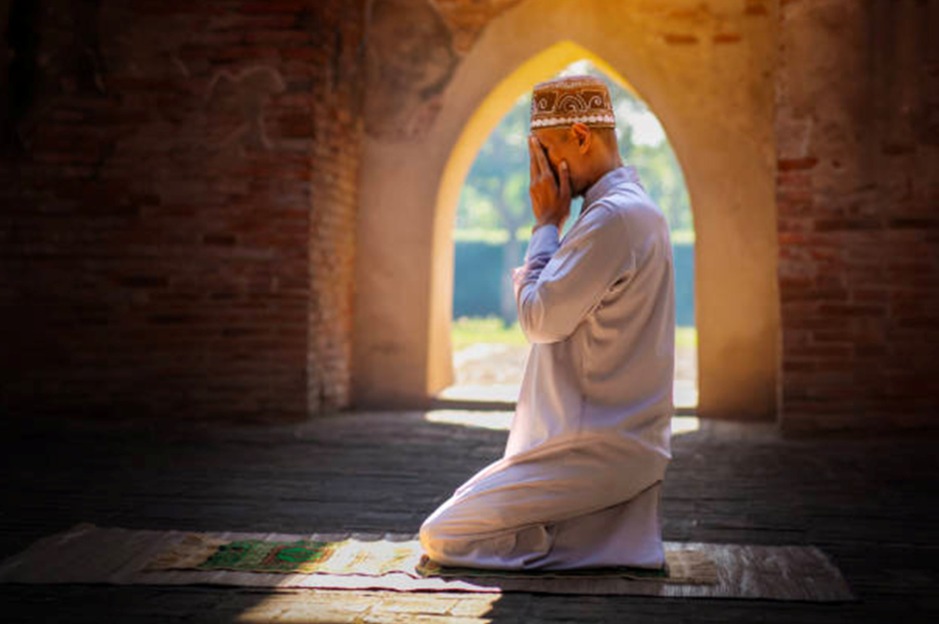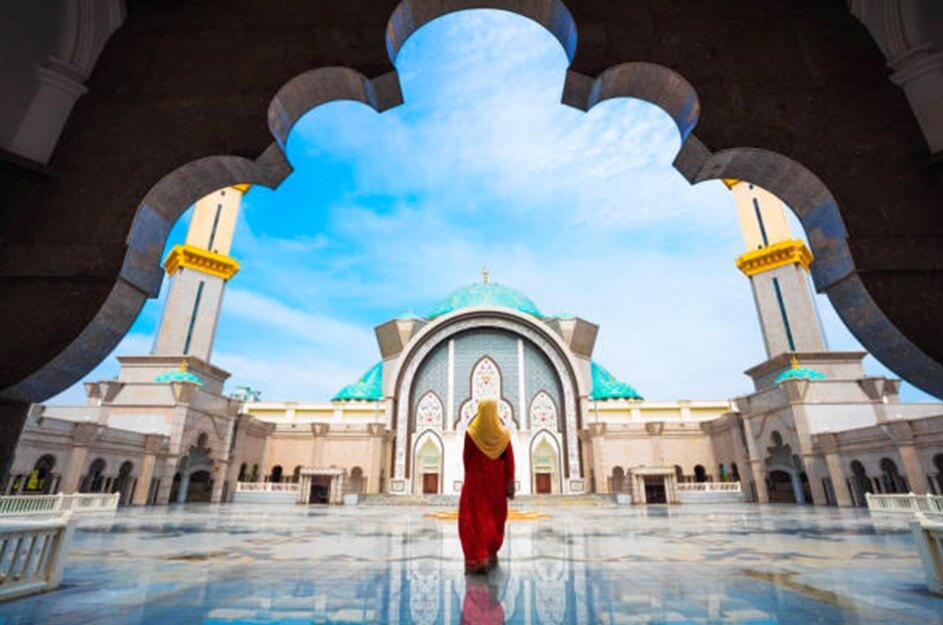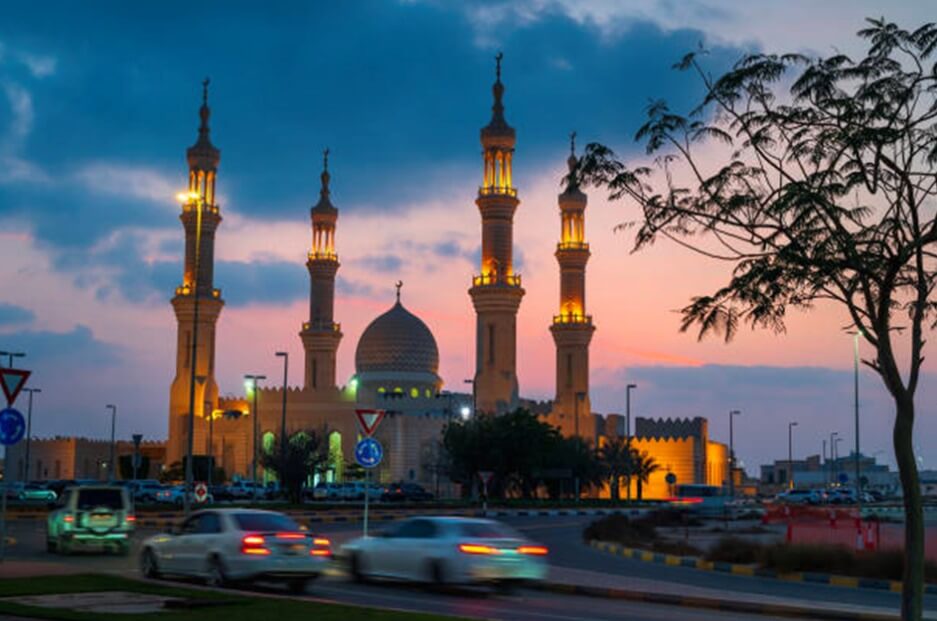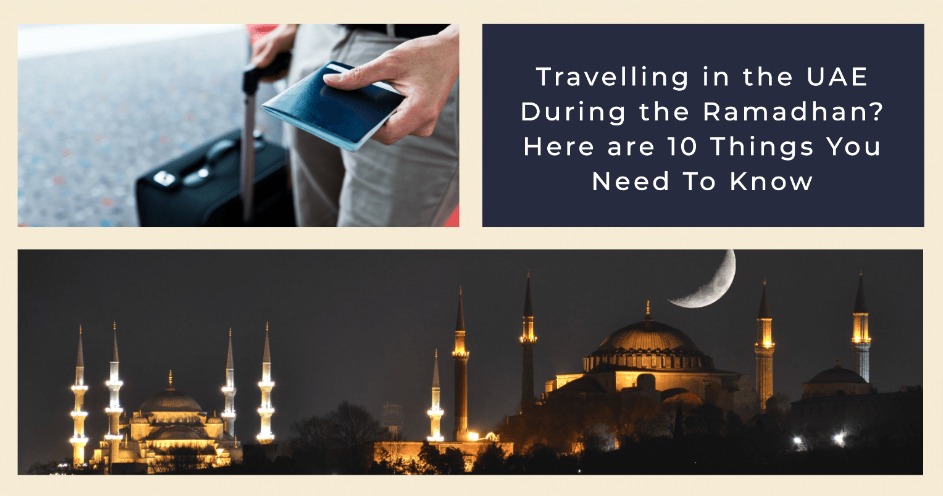Ramadan is a significant month for Muslims around the world, and the United Arab Emirates (UAE) is no exception. If you’re planning a trip to the UAE during Ramadan, it’s important to be aware of the cultural and religious customs observed during this holy month.
In this article, we’ll explore ten essential things you need to know to ensure a respectful and enjoyable experience while travelling in the UAE during Ramadan.
What is Ramadan?

Ramadan is the ninth month of the Islamic lunar calendar and is considered one of the holiest months for Muslims worldwide. It is a time of fasting, prayer, self-reflection, and increased devotion to Allah (God) for Muslims. The precise dates of Ramadan vary each year as the sighting of the moon determines them, but it typically lasts for 29 or 30 days.
During Ramadan, observant Muslims abstain from food, drink, smoking, and other physical needs from dawn (Fajr) until sunset (Maghrib). This daily fast is one of the Five Pillars of Islam, which are Muslims’ fundamental acts of worship. The fast begins with a pre-dawn meal called Suhoor and ends with a meal known as Iftar, consumed after sunset.
Fasting during Ramadan is obligatory for adult Muslims, with exceptions for those who are ill, pregnant, nursing, travelling, menstruating, or experiencing other health-related conditions. However, fasting is considered a highly virtuous act and a means of purifying the soul, seeking forgiveness, and developing self-discipline and empathy towards those less fortunate.
At the end of the month, Ramadan culminates in the celebration of Eid al-Fitr, a joyous holiday that marks the breaking of the fast. Muslims gather for communal prayers, exchange gifts, and enjoy festive meals with family and friends. It is a time of gratitude, celebration, and renewal of faith.
10 Things You Need To Know When Travelling to the UAE During Ramadan

Respectful Dress Code
During Ramadan, the UAE observes a more conservative dress code, and it is especially important to dress modestly to show respect for local customs. Both men and women should avoid wearing revealing or tight-fitting clothing. Women are advised to cover their shoulders and knees, while men should avoid walking shirtless.
Wearing lightweight and breathable fabrics is recommended, as the weather in the UAE during Ramadan can be quite hot. Adhering to the modest dress code not only shows respect for the local culture but also ensures a more comfortable and hassle-free experience during your trip.
Fasting and Eating
Ramadan is a sacred month during which Muslims fast from sunrise to sunset. While non-Muslims are not required to fast, it is important to be considerate and avoid eating, drinking, or smoking in public during daylight hours. This is to show respect for those who are fasting and adhere to local customs and traditions.
Many hotels and restaurants in the UAE understand the needs of non-Muslim visitors and provide designated areas where they can discreetly enjoy their meals. Eating in private spaces or indoor areas is advisable to avoid any unintentional offence.
Remember, once the sun sets, you can join the locals in breaking the fast and enjoying the festive atmosphere and delicious cuisine that Ramadan brings.
Reduced Working Hours
During Ramadan, you may notice that businesses and government offices in the UAE operate on reduced working hours. This accommodates the changes in daily routines and allows Muslims to observe their religious practices. It is important to plan your activities accordingly and be aware of the altered schedules.
Some establishments may close earlier than usual, so it’s advisable to check the timings in advance and plan your visits accordingly. Public transportation schedules may be adjusted during this time, so it’s a good idea to familiarise yourself with any changes to avoid any inconvenience.
While reduced working hours may impact certain services, it also presents an opportunity to immerse yourself in the unique Ramadan atmosphere. Take this time to explore the vibrant night markets, known as “Ramadan Souks,” which come alive with stalls selling various goods, including clothing, accessories, and traditional handicrafts. These markets often stay open late at night, offering an excellent opportunity to experience the local culture.
Cultural Sensitivity
Respecting the cultural sensitivities of the local population is of utmost importance when travelling in the UAE during Ramadan. This holy month holds great significance for Muslims, as it is a time of reflection, prayer, and increased devotion. To show your respect, avoiding engaging in behaviour that may offend or disturb others is essential.
This includes refraining from public displays of affection, keeping music volumes at a considerate level, and being mindful of your actions in public spaces. By being culturally sensitive, you contribute to a harmonious atmosphere and demonstrate your appreciation for the local customs and traditions.
Iftar and Suhoor
Iftar, the meal that breaks the fast at sunset, and Suhoor, the pre-dawn meal before fasting begins, are important rituals during Ramadan. The UAE offers many dining options to experience these traditional meals. Many hotels and restaurants organise grand iftar and suhoor buffets featuring a rich array of Emirati and Middle Eastern delicacies.
These feasts provide an excellent opportunity to immerse yourself in the local culture, try traditional dishes, and converse with locals and fellow travellers. To ensure a seamless dining experience, it is advisable to make reservations in advance, as these venues tend to be in high demand during Ramadan.
Night Markets and Festivities
One of the highlights of Ramadan in the UAE is the vibrant night markets known as “Ramadan Souks.” These markets are set up in various locations, offering a unique shopping experience for locals and visitors alike. Strolling through the bustling stalls, you’ll find various products, including clothing, accessories, home decor, and traditional handicrafts. These markets also provide a platform for local artisans to showcase their talents and craftsmanship.
Alongside shopping, you can indulge in delectable local delicacies, such as Arabian sweets and traditional beverages. Live entertainment, including music and cultural performances, adds to the festive ambience of the Ramadan Souks. Exploring these markets allows you to soak in the cultural vibrancy of the UAE and take home memorable souvenirs that reflect the spirit of Ramadan.
Mosque Visits
Visiting mosques during Ramadan can be a meaningful and educational experience for tourists. Many mosques in the UAE are open to non-Muslims, providing an opportunity to witness the spiritual atmosphere and observe Islamic rituals. It’s important to dress modestly, covering your shoulders and legs, and women may be required to wear a headscarf.
Remember to remove your shoes before entering the mosque and be respectful of prayer times, avoiding visits during these hours.
Alcohol Consumption
In the UAE, there are strict regulations regarding alcohol consumption, and these rules are even more stringent during Ramadan. Non-Muslims can typically find alcohol in licensed venues such as hotels, but it’s important to consume alcohol discreetly and only in designated areas.
Public displays of drinking or intoxication are considered disrespectful during this holy month. It’s advisable to familiarise yourself with local laws and customs regarding alcohol consumption to ensure compliance and show sensitivity to the cultural context.
Public Transportation and Traffic
During Ramadan, public transportation schedules may be adjusted to accommodate the altered routines of fasting individuals. It’s recommended to check the timings and any possible changes in advance to plan your travel accordingly.
Additionally, traffic congestion can be high before sunset as people rush to break their fast. Allow extra time for your journeys and be patient while navigating the roads during this busy period.
Embrace the Spirit of Ramadan
One of the most enriching aspects of visiting the UAE during Ramadan is the opportunity to embrace the spirit of the holy month and engage with the local community. Participate in charitable activities such as volunteering or donating to worthy causes.
Seek out opportunities to learn about Islamic traditions, attend cultural events, or engage in conversations with locals. By showing genuine interest and respect for the customs and practices of Ramadan, you can foster cultural understanding and create meaningful connections with the community.
Additional Tips when Travelling During Ramadan

To make your travels more enjoyable and serene during this holy season, here are some additional tips to keep in mind.
- Learn some basic Arabic phrases. A simple greeting like “Ramadan Kareem” (Happy Ramadan) goes a long way in showing respect and appreciation.
- Be mindful of noise levels. Loud music and boisterous behaviour are considered disrespectful during this contemplative period. Keep your noise levels moderate, especially in public areas.
- Experience Ramadan traditions. Attend cultural events, visit Iftar gatherings (evening meals breaking the fast), or observe Taraweeh prayers (special night prayers).
- Try Ramadan delicacies. Sample the unique dishes prepared specifically for the holy month, like dates, luqaimat (sweet dumplings), and chebab (pancakes).
- Be aware of adjusted schedules. Many businesses, restaurants, and attractions may have shorter operating hours during Ramadan. Plan accordingly and be flexible.
- Book accommodations in advance. Ramadan is a popular travel time, so book your hotels and tours well in advance.
- Be patient and understanding. Remember that people may be tired or irritable due to fasting, so be patient and understanding if you encounter any delays or inconveniences.
- Donate to charity. Ramadan is a time for giving and charity. Consider donating to a local charity that supports those in need.
Conclusion
Travelling to the UAE during Ramadan can be a rewarding experience, but it requires understanding and respect for local customs. By following these ten essential tips, you can enjoy a memorable trip while being considerate towards the religious observances of the holy month.
Embrace the unique atmosphere, indulge in traditional cuisine, and create lasting memories as you explore the UAE during Ramadan.


